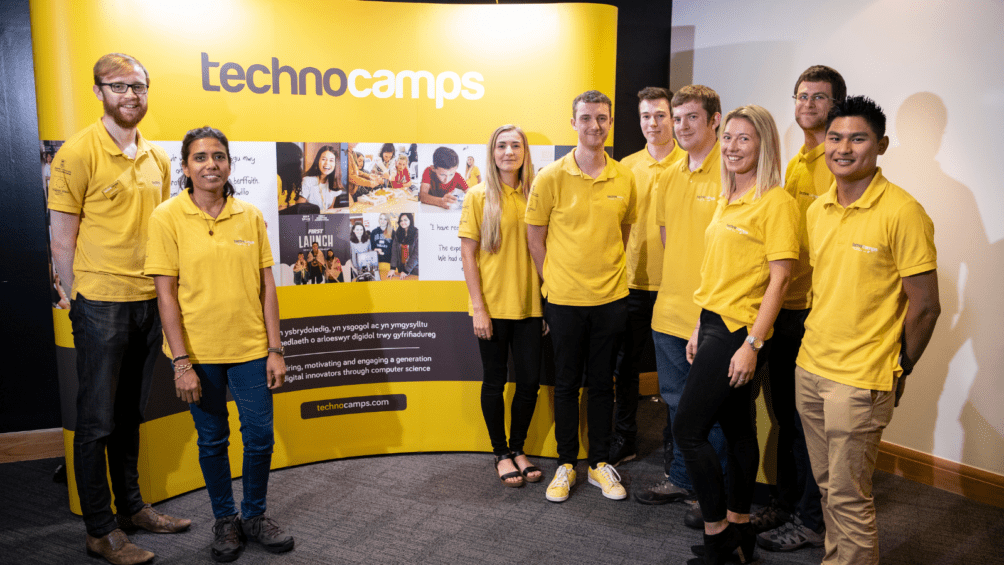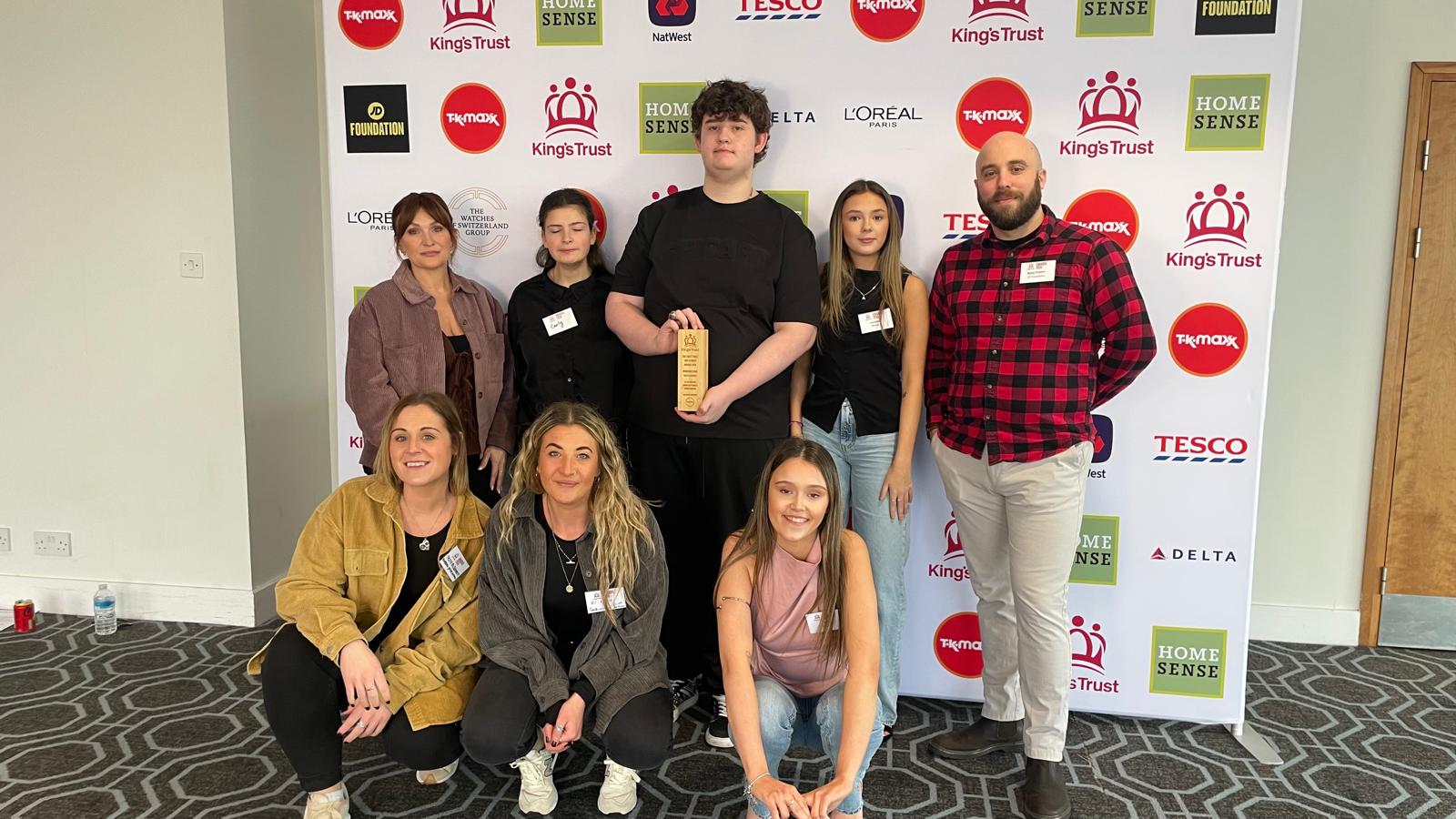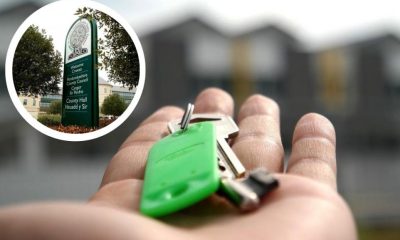Education
Fostering Creativity in Education: StateOfWriting’s Best Practice

Creativity is the beating heart of education, but finding an effective way to nurture creative thinking can be difficult. StateOfWriting encourages you, as an educator, and your students to unleash your creative sides with the following five practical strategies to enhance creativity in education.
1. Embrace Interdisciplinary Learning
Education stays isolated when topics are kept separate and are not mixed like ingredients in a smoothie – only when that happens is creativity born. Encourage children to find connections between subjects like art and science or history and technology. StateOfWriting is one free resource where educators can order custom-created assignments that mix the two, and students can get custom writing online. You would never expect algebra to help create a masterpiece, but sometimes, it could.
2. Create a Safe Space for Experimentation
In case you forgot, creativity is a messy process. It’s adding a pinch of mayhem so you can discover something that works. Support an environment where students can feel psychologically safe with experimentation and failure. Teach learners that there is no creation without experimentation and no success without trial and error. Students must learn not to fear the failing grade, but instead fear the missed opportunity to learn something new. Your classroom must be a safe zone where there are no bad ideas and no stone will be left unturned in search of wisdom.
3. Encourage Divergent Thinking
Ever heard of thinking outside the box? Teach your learners to destroy the box altogether – that’s even better. Divergent thinking is about finding more than one solution to a problem; even the wildest and craziest solutions that a person might think are bananas can work in mysterious ways, and that’s actually how most inventions were born. Appropriate prompts and exercises can encourage students to think outside the box when brainstorming ideas. With StateOfWriting, students can polish those wild ideas into structured essays or consolidated arguments that can make even the harshest cynics go: “Hmm. Maybe there is something to their idea after all”.
4. Integrate Technology in Creative Projects
Tech creativity? That doesn’t sound right, does it? But it can be! To make the most of creative assignments, provide students with digital tools and platforms where they can create. A digital museum exhibit, for example, or a multimedia presentation created with images, video, text, and music that illuminate a topic of study. Teach learners how to use these tools and platforms, helping your charges not only meet academic standards but also expand them creatively, shaping new possibilities.
5. Celebrate Diversity of Expression
There are more shades of creativity than you could find in a rainbow. Let your students express themselves in ways that are authentic to them: writing, drawing, music, dancing, and anything in between. StateOfWriting is here to support students beyond essay writing – we celebrate creativity in all forms and strive to offer resources that empower students to express themselves authentically. Be unapologetically yourself when working on your assignments, and the result will pleasantly surprise both you and your professors.
Unleashing the Creative Spark
Creativity isn’t just a buzzword. It’s the other side of learning, the spark in the corner of the professor’s eye, the impulse behind the kid asking questions. When educators turn thought into action and philosophy into exploration, students embrace the learning process. Interdisciplinary studies, safe spaces and playful experimentation, divergent thinking, technology, and the embrace of difference — these are the tools of creativity. With the help of StateOfWriting’s tools and tutors, educators can turn learning and assessment into a creative experience that lights the fires of innovation in every student.
Education
Industry insight helps marine cadets chart career course

Shipping professional visits Pembrokeshire College to showcase real-world opportunities on the Milford Haven Waterway
STUDENTS training for careers at sea were given a first-hand look at life in the maritime industry after a leading shipping professional visited Pembrokeshire College to share his experience of operations on the Milford Haven Waterway.
Toby Forester, from Williams Shipping, met with the College’s Enhanced Marine Engineering Pre-Cadets to explain how commercial shipping, marine services and logistics work together to keep one of the UK’s busiest energy ports moving.

Learners heard about the wide range of activity taking place daily on the estuary, including vessel movements, specialist support craft, safety management and the coordination required to operate safely and efficiently in a working port environment.
Staff said the session gave students valuable real-world context, helping them understand how the engineering skills they develop in workshops and classrooms directly translate into careers within the maritime and energy sectors.
The visit forms part of the College’s wider effort to strengthen links between education and industry, ensuring young people are exposed to employers and career pathways while still in training.
College representatives said experiences like this help build confidence and ambition among learners considering technical roles at sea or ashore.
They thanked Williams Shipping and Mr Forester for supporting the next generation of marine engineers and helping inspire future talent in Pembrokeshire’s coastal economy.
Photo caption: Marine engineering pre-cadets at Pembrokeshire College welcomed an industry talk from Williams Shipping about operations on the Milford Haven Waterway (Pic: Supplied).
Education
Funding axe falls on Welsh digital education scheme as £1.4m handed to English uni

Face-to-face training replaced with online resources in decision branded a ‘slap in the face’ for Wales
A LONG-RUNNING Welsh digital education programme that has trained thousands of teachers and pupils every year is facing an uncertain future after Welsh Government funding was cut and redirected to an English university.
Technocamps, a Swansea University-based project which has operated across Wales for twenty-two years, has described the decision as a major blow to digital skills development, with staff already losing jobs and schools left without in-person support.
Instead of renewing Technocamps’ funding, ministers have awarded £1.4 million under the Curriculum for Wales Grant Support Programme to the University of York to deliver mainly online learning resources, with only limited face-to-face sessions in what are described as “priority areas”.
Critics say the move risks replacing hands-on, bilingual classroom support with generic remote materials.
Each year Technocamps provides direct training to more than 900 teachers and delivers workshops to over 30,000 young people in schools across Wales, working face-to-face with pupils to improve coding, computing and digital literacy.
The programme has been widely credited with helping schools meet the growing demands of the Curriculum for Wales and tackling shortages in specialist computing skills.
‘Bitter disappointment’
Plaid Cymru MS Sioned Williams, who represents South Wales West, said she had met the Technocamps team again this month and would be writing to the Cabinet Secretary for Education seeking answers.
She said: “The necessity of good quality, face-to-face digital skills training has never been more important in this digital age.
“I’ve seen firsthand how engaging and effective a Technocamps workshop is and what makes this programme so great is that it is made in Wales, delivered bilingually through our network of universities and is able to reach every school and teacher.
“That’s why the news that Welsh Government has cut funding is so bitterly disappointing.
“At a time when Welsh universities are in financial crisis, it’s an additional slap in the face that what little funding has been allocated has gone to a university in England.”
Jobs lost across Wales
Beti Williams MBE, the programme’s founder and patron, said the funding decision had already resulted in redundancies.
She said: “The end of Technocamps funding has led to the unemployment of teacher trainers at universities across Wales, leaving nearly 1,000 school teachers who rely on our bespoke in-person training and support in limbo.
“Replacing Technocamps with predominantly standard online courses is an insult to Welsh universities. Online courses, of which there is unlimited choice, offer nothing to struggling teachers who rely on tailored, face-to-face help.”
A petition calling for funding to be restored has gathered more than 4,000 signatures and is now being considered by the Senedd Petitions Committee.
Questions over value for money
The decision has also raised questions about value for money.
According to supporters, the £1.4m grant awarded to York is almost double Technocamps’ previous annual funding, yet delivers fewer in-person services.
There are also concerns that only seven per cent of the wider Curriculum for Wales grant funding over the next three years is allocated to science and technology subjects.
Education campaigners warn that reducing practical support in computing and digital technology could widen skills gaps at a time when Wales is trying to attract high-tech industries and improve economic productivity.
Digital divide fears
Teachers have long argued that in-person training is essential, particularly for schools with limited IT expertise or rural connectivity challenges.
Technocamps staff say online-only provision risks leaving some schools behind.
Ms Williams added: “It’s so important that we keep this crucial skills and knowledge in Wales. The thought that we could lose this valuable resource makes no sense at a time when the need for digital competency has never been greater.”
Welsh Government has been asked to explain why the funding was awarded outside Wales and whether the impact on Welsh university jobs and school support was assessed before the decision was made.
Community
Haverfordwest students win national King’s Trust honour

Community mural project earns Wales title and trip to London finals
A GROUP of young people from Haverfordwest High School are celebrating a major achievement after being crowned Wales country final winners at the King’s Trust Awards 2026.
The students secured the JD Foundation Community Impact Award and will now represent Wales at the King’s Trust National Awards in London.
The award recognises an outstanding community project delivered through the King’s Trust Achieve Programme, a Key Stage four GCSE option offered at the school and delivered locally by Pembrokeshire Youth Service.
Led by school-based youth worker Ell Lewis, the programme supports pupils who may find traditional academic routes challenging, including those facing emotional, social or caring responsibilities.
As part of their Community Impact project, the group identified a vandalised pedestrian tunnel in Haverfordwest that is used daily by students travelling to and from school. Determined to improve the space, they worked together to design and paint a large-scale mural celebrating wellbeing, identity and local pride.
The once run-down underpass has now been transformed into a colourful and welcoming feature, drawing praise from residents and passers-by.
Community members described the artwork as uplifting and inspiring, with many noting the positive difference it has made to young people using the route each day.
One participant said: “This project is our legacy. We’ve created something lasting that represents who we are and where we come from. It’s amazing what a cup of tea and a conversation can lead to.”
Mr Lewis said the benefits extended far beyond the finished mural.
He said: “Beyond its physical impact, the project has helped the young people build confidence, teamwork, leadership and communication skills. Their courage, resilience and ambition can’t be faulted. I am incredibly proud of them. All members of the group have since progressed into further education or employment.”
The students secured funding through the Pembrokeshire Youth Bank Grant and received support from local businesses including GD Harris & Sons. They also worked with local councillors, the local authority and local artist Lloyd Griffiths.
Additional funds were raised through school-led activities including bake sales and raffles.
The group will now travel to London to compete in the national finals, representing both their school and Pembrokeshire on a national stage.
Cover photo:
Proud moment: Members of the Haverfordwest High School group at the Wales King’s Trust Awards ceremony (Pic: Supplied).
-

 Health4 days ago
Health4 days agoConsultation reveals lack of public trust in health board
-

 News5 days ago
News5 days agoCaldey still unsafe, survivors warn — despite Abbey’s reform claims
-

 Community4 days ago
Community4 days agoPembrokeshire students speak at national Holocaust Memorial Day event
-

 News7 days ago
News7 days agoWales warned against single police force as Lib Dems cite Scotland ‘lesson’
-

 Crime7 days ago
Crime7 days agoMilford Haven man appears in court charged with burglary and GBH
-

 Business7 days ago
Business7 days agoDuke of Edinburgh Inn in Newgale on the market for £325,000
-

 Local Government7 days ago
Local Government7 days agoPembrokeshire council house rents to increase this year
-

 Local Government6 days ago
Local Government6 days agoTribunal over former Neyland councillor’s conduct adjourned
















